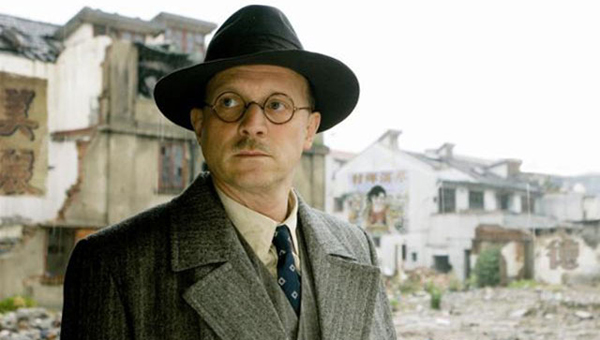City Of War: The Story Of John Rabe DVD Review

For he’s a jolly good fellow.
That’d be John Rabe then, the protagonist of City Of War: The Story Of John Rabe.
Guess I should have seen that one coming.
In truth John Rabe’s story is secondary in City Of War, set as it is against the backdrop of the massacre of Nanking; an atrocity committed by the Japanese Imperial army against China’s then capital that resulted in the deaths of over 300,000 people.
An incident I’m ashamed to say I had no idea of until watching this film.
The film opens with John Rabe narrating from his own diaries, which would later go on to form a crucial element in uncovering the truth behind what happened in Nanking.
It’s late November, 1937 and the Imperial Japanese army are advancing west through China.
Having already razed Shanghai to the ground, war is upon Nanking.
With work on a new electro dam complete, Siemens engineer and loyal National Socialist Party member John Rabe is preparing for life back in Berlin after nigh on three decades in China.
Only all is not as it seems.
Rabe’s replacement, a company stooge by the name of Werner Fliess, can not hide his disdain for the way Rabe has been running Siemens plant.
And anything else not nationalistic enough to sate his patriotic, german fervour.
Fliess, who we know will be a bad guy from the scar on his right cheek and propensity for going “the full Harry”, i.e. dressing up in national socialist uniform at every available opportunity, gleefully divulges their company’s plan to phase out operations in Nanking.
Siemens are preparing to withdraw from the city before Germany’s committed ally Japan attacks; and the dam, Rabe’s legacy, will be lost.
When the inevitable first attack arrives, Rabe has yet to leave and plays an instrumental part in safeguarding his former employees’ lives from the air raids.
Much to the chagrin of his successor Fleiss, who promptly flees.
After this initial bombing, with the chinese government having also fled the city, Rabe elects to stay in Nanking as chairman of a “safe zone” set up by a small number of westerners living in the city at the time; to provide a quantum of sanctuary for Nanking’s inhabitants.
Having become emotionally attached to the city and her people, Rabe can not bring himself to leave Nanking’s fate in the hands of the Japanese army.
And history has shown what a noble decision this was.
Having researched the Nanking massacre after watching this film, it’s hard to believe any human race could be capable of the savage and brutal acts committed by Japanese soldiers in the name of war.
Acts that even to this day Japan has not fully acknowledged the scale of.
Some historians and political parties have gone as far as denying the “raping” of Nanking even took place at all.
Without the noble efforts and bravery of John Rabe amongst others, this massacre would have most likely been purged from history entirely.
The film itself is a slightly mixed affair that suffers from trying to weave a conventional narrative with its horrific source material.
As a result, it’s often hard to discern between scenes based upon fact and those designed to add drama to City Of War.
I found this dramatic element added by writer and director Florian Gallenberger detracted from the impact of his film’s emotional impact.
Still, when choosing to make a film that deals with subject material so deserving of attention as City Of War, it would be petty in the extreme to be overly critical.
And one thing’s for certain.
Which nobody can deny.
That John Rabe was a jolly good fellow.
Jonathan Campbell